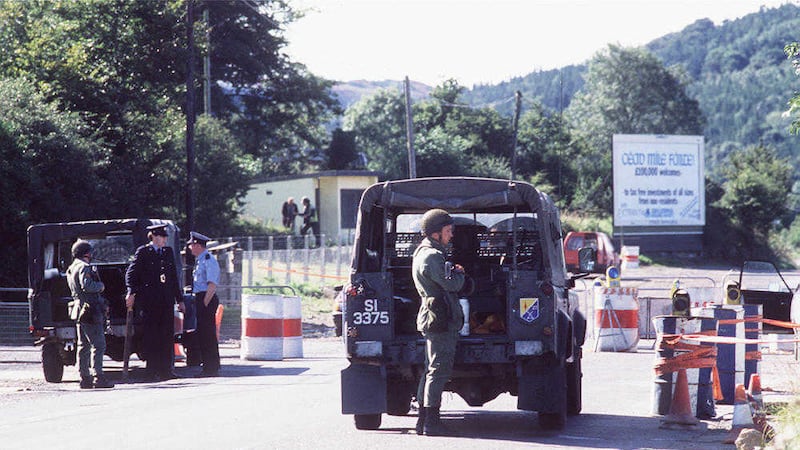A UK exit from the European Union would put cross-border travel and free movement between Ireland and Britain "at risk", according to the Home Office.
The British government department joins a growing list of individuals and organisations who expect checks to be imposed along the Irish border in the event of the 'Vote Leave' campaign being victorious in the June 23 referendum.
Its concerns are voiced in a letter to Newry Chamber of Commerce and Trade after the body wrote to Home Secretary in April on foot of Secretary of State Theresa Villiers's assertion that the long-standing common travel area involving Ireland and Britain would remain in place.
Ms Villiers's claim that "goodwill and common sense" would see free movement between Ireland and Britain prevail post-Brexit has been widely contradicted, including by her eurosceptic ally and former chair of the Leave campaign, Lord Nigel Lawson.
Doubts over the secretary of state's claim have also been raised by Taoiseach Enda Kenny, Minister for Foreign Affiars Charlie Flanagan and former Northern Ireland secretary of state Peter Hain. But Ms Villiers remains steadfast in her belief that the common travel area will not be affected by a Brexit and she reitterated it in an interview with The Irish News earlier this week.
The Home Office, however, does not share the secretary of state's optimism.
Free movement
Writing in response to a letter from Newry Chamber president Michael McKeown, a Home Office official said that while the British government wanted to sustain the free movement of people between Britain and Ireland, this could not be guaranteed.
The letter said those who argue that the current common travel area arrangements would continue after a 'leave' vote were failing to take into account the 1997 Treaty of Amsterdam.
"The UK could continue to grant the existing rights of residence and movement between the two states to Irish nationals following a UK exit from the EU," it said.
"However, there is a question as to whether Ireland, as an EU member state, could continue to do the same for British citizens on a bilateral basis without the agreement of the EU and whether any new terms of the common travel area, in particular their impact on wider immigration arrangements, were acceptable to the UK."
The letter says that in the event of a Brexit, the Irish border would represent an external border to the EU.
"Those arguing to leave the EU need to explain how they would honour their promises on future border arrangements between the UK and Ireland, in particular how they would avoid having to introduce immigration checks on the border when the common travel area relies on the fact that the UK and Ireland have similar immigration arrangements."
WATCH:
Conor Paterson of Newry Chamber said the letter confirmed his members' fears about the implications of a Brexit.
"This letter from the Home Office clearly shows that those who have raised concerns about the possibility of a hard border are not scaremongering," he said.
"It is there in black and white – and now it's up to those campaigning to leave the EU to show us the basis of their claims about retaining an open border."
But regional head of the Vote Leave campaign Lee Reynolds said the letter clearly stated that there was "no push, desire or intent" to introduce border controls. He said there was "no surprise" that Britain and Ireland wanted to leave maintain the common travel area.
"The movement of goods and people across the borders of EU and non-EU countries already happens elsewhere and can simply happen here," Mr Reynolds said.
"The common travel area arrangements survived the worst periods of our history and so they will be able to continue with the positive development of a Vote Leave on June 23."
Common travel area
Deputy First Minister Martin McGuinness said Ms Villiers's claim about the common travel area was "totally wrong" and he pointed to the remarks in February by Lord Lawson, where the Tory peer said Ireland would have a hard border if Britain left the EU.
Mr McGuinness said a Vote Leave victory and a subsequent hardening of the border would have "very profound consequences for business on the island of Ireland."
"It wouldn't just be an economic border, it would be a physical border to check for people who are variously described as refugees or economic migrants – that would be ridiculous," he said.
SDLP Newry and Armagh MLA Justin McNulty said the letter had "blown another hole in the already shattered narrative" of the Brexiteers.
"The dissolution of the common travel area and barriers to customs partnership would represent the reintroduction of a physical border and has the potential to devastate local economies," he said.




